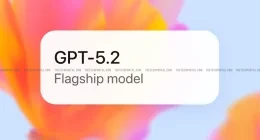Facebook has announced a Snapchat clone today that is going live in Poland, a country where Snapchat isn’t a household term. It seems like the company is experimenting with how the new Stories format would perform in a country which hasn’t yet seen it in flesh and bone.
If you’re Polish or live in Poland –where it is not particularly popular — or just don’t know what the Stories format is, it’s essentially the whole platform Snapchat is based on. You can share your pictures or photos to anyone that follows you, with the understanding that they will automatically disappear in 24 hours.
While Stories is more popular in certain parts of the world and virtually unknown in others, Messenger is a universal app that is pretty well known, everywhere. It has retained its position on the top in most app stores for a while now. And adding a live casting feature to this application could potentially boost retention and return visits to the app.
Facebook told TechCrunch in a statement:
We know that people come to Messenger to share everyday moments with friends and family. In Poland we are running a small test of new ways for people to share those updates visually. We have nothing more to announce at this time.
While the development is quite exciting, it seems as though the feature could be made exclusive to Poland and other countries where Snapchat isn’t present unless the company sees a booming business.

The service is almost a complete knock-off of Snapchat. While giving users the ability to draw or add text to images, it also lets them apply various filters. One amazing new innovation that Facebook has come up with however, is in the form of graphic filter suggestions. You can see a row of tiles that represent individual emotions, locations or holidays at the top of the Messenger thread list which can be selected to go into a more detailed list of filters. Select any one of them and voilà, Messenger will have the picture perfected for you.
Evidently, Facebook is working pretty hard to get Messenger’s humongous user base up and get people to revisit it more often. If this small experiment succeeds, we could perhaps see a global roll out of this feature. However, its too early to get your hopes up just yet.
The Tech Portal is published by Blue Box Media Private Limited. Our investors have no influence over our reporting. Read our full Ownership and Funding Disclosure →





